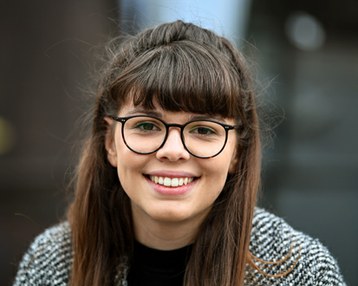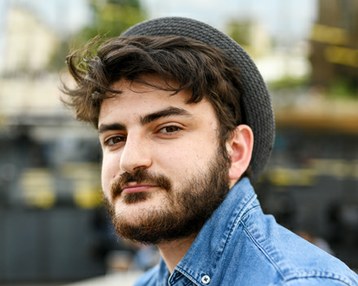Versatile Intermediaries
Freiburg, May 17, 2018
Great opportunities and challenges: Germany and France have close economic relations. Experts need to have an overview about the legal fundamentals and peculiarities of the two systems – in the master's degree program in International Business Relations, students acquire the necessary knowledge for it. A series presents seven additional international collaborations.

Customers’ product preferences and advertising are different in France and Germany. The graduates’ experiences are in high demand in the marketplace. Photo: Tim Guow/Unsplash
Germany and France are the most important European trading partners for one another, which provides great opportunities for the economy in both countries, but also requires that companies have special skills and knowledge of the respective economic systems, the legal fundamentals and the international context. Directed toward both German and French students, the masterʼs degree program “International Economic Relations”provides insights into exactly these issues. It is offered jointly by the Center for French Studies at the University of Freiburg, the Université Paris-Est Créteil Val de Marne and the University of Strasbourg in France.
The oldest masterʼs degree program at the Center for French Studies began in the 2002/2003 winter semester. Paris was the first partner, followed by Strasbourg in 2010. The program is consciously designed for graduates of all bachelorʼs degree programs, not just economists, says Eva Coydon, director of the Center for French Studies:“About three quarters of the applicants come from the humanities.”During the four-semester long masterʼs degree program, students focus on economics and business administration, intercultural marketing, the fundamentals of civil and European law and the structures of public administration, concentrating on Germany and France as well as an international perspective.
Three main points
Students can choose one of three main topics: management and international trade, international trilingual management or international innovation management. The first two topics are offered by the Center for French Studies together with the Université Paris-Est Créteil, the third together with Strasbourg.
Depending on the focus and partner university, the structure of the program may differ slightly. Nonetheless, Germans and French study in Freiburg as well as in Paris or Strasbourg – to a large extent together. About 25 to 30 students study at the Center for French Studies each year and are taught by Freiburg professors and guest lecturers.“All courses are offered specifically for master's students,”says Coydon. The graduates receive a double certificate from Freiburg and Paris or Strasbourg.
The Center for French Studies itself has room for 15 students for which 40 to 50 candidates apply each year. A prerequisite is a minimum proficiency in French that matches the European mean (level B2). Students are required to take accompanying university-level language courses for the first year. In addition, applicants must have a bachelorʼs degree or equivalent with a grade point of average of at least 2.5. They are also required to take an admissions test.
The financial aid association“Deutsch-französische Hochschule”(Franco-German University) pays students a monthly mobility stipend of 270 euros during their ten-month time abroad. In addition, it provides 200 euros per month in the form of a scholarship from the Center for French Studies. Additional funding is possible through the Erasmus program. And some companies offer remuneration during the students’mandatory internship.
Understanding product preferences
During the practical phase of the program, students take care of building the German version of a companyʼs Website or an online shop for a French company.“It is about more than just translation – they often have to do a lot of intercultural intermediary work,”reports Coydon. In Germany, for example, different certificates for Internet commerce are widely distributed, the usual payment options differ, and the customers’need for information, product preferences and advertising are different in the two countries. The graduates’ experiences are in high demand in the marketplace, says Coydon. About one-third of them already have job offers before they have completed their degrees, typically with companies that have a Franco-German focus.
Thomas Goebel
Master of Arts International Economic Relations
● The masterʼs degree program begins every winter semester.
● Applications are accepted until June 30.
● The program runs for four semesters.
For more information
 Vivien Ulrich studies International Economic Relations.
Vivien Ulrich studies International Economic Relations.
Photo: Patrick Seeger
“I think it's great that the masterʼs program is focused on economics without it being aimed at economics. That way you are able to get into the basics. I also like that we are a small group, which is also good for perfecting our French. And of course, the Franco-German focus is a great thing overall. I think itʼs best that the program is very practice-oriented and that we also have lecturers from the departments of business and administration – from real life so to speak. That way we get to know the practical side of things.”
 Justin Niel studies International Economic Relations.
Justin Niel studies International Economic Relations.
Photo: Patrick Seeger
“We are a small group of people – half French, half German. IT is ideal for our language and personal development. The atmosphere is super. We all have very different backgrounds. Some studied law, for instance while others such as myself have studied business management. In that way, we are able to help each other and, in the end, we all have the same abilities. I think it is great to have such different lecturers and forms of instruction.”

